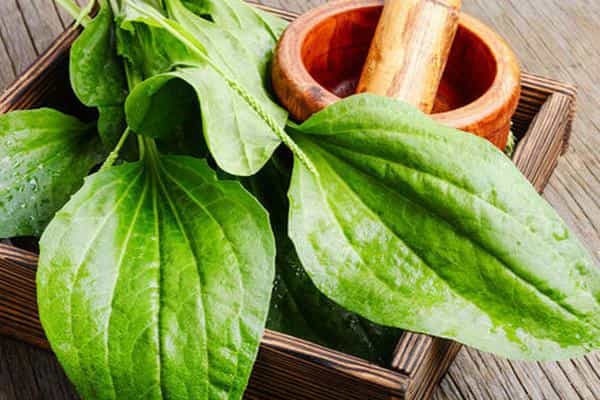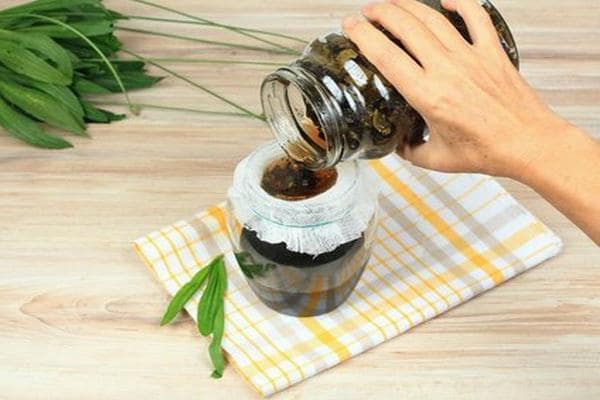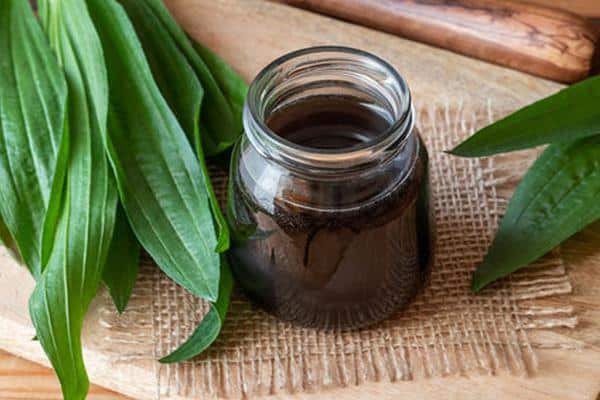Зміст
Grasses growing in meadows, along fields and forest paths, or even on sidewalks or between buildings are often a treasure trove of valuable health-promoting ingredients. One of them is the lanceolate plantain, which grows on all continents as an inconspicuous weed. The plant has a number of unusual properties, thanks to which it is used in the treatment of many ailments. It has antibacterial, antiviral and anti-inflammatory properties and has been used for centuries to treat wounds, swelling and bites. However, these are not the only benefits of plantain.
The syrup made from it is an excellent remedy for upper respiratory tract infections, soothing coughs and sore throat. It also helps with the so-called “smoker’s cough”. The syrup is also great for stomach ailments and excessive blood vessel permeability, which strengthens the circulatory system and heart. How else can plantain help us? How to make natural syrup from it?
Plantain composition
There are a number of health-promoting ingredients in plantain. It contains phenols, flavonoids, tannins, Coumadin, sterols, polysaccharides, as well as a large amount of mucous substances. In addition, plantain is a source of organic acids, carotene, vitamins C and K, and minerals such as potassium, magnesium, sodium, zinc, silicon, calcium, and phosphorus. Thanks to these ingredients, plantain has anti-inflammatory, antibacterial and antiviral properties. In ancient times it was used for snake and scorpion bites, and in later years it was used as compresses for swelling, bruising and difficult healing wounds. The syrup made from it retains all its valuable properties, and even its effect is enhanced due to the fact that it is better absorbed by the body.
Plantain syrup properties

Psyllium syrup is known for its excellent action against colds and respiratory infections. Plantain contains mucous substances that relieve irritation of the mucous membranes of the mouth, throat and gastrointestinal tract. Thus, it reduces the accumulation of mucous membranes, fights inflammation and relieves pain. Plantain syrup also acts as an expectorant, antispasmodic and regenerates damaged epithelium, therefore suppressing coughs, both dry and wet. The product is also recommended for smokers in the so-called. “Smoker’s cough.” It also helps with tuberculosis, whooping cough and asthma. It is also recommended to use psyllium syrup for teachers, lecturers and trainers who are at increased risk of developing an occupational disease associated with hoarseness.
Plantain lanceolate helps not only the respiratory tract. The syrup prepared on its basis also has a beneficial effect on the circulatory system, as it clogs blood vessels and increases blood clotting. The mucous substances it contains can also reduce stomach discomfort such as stomach ulcers, diarrhea, or intestinal catarrh. A decoction of plantain leaves and syrup can also be used on mosquito and other insect bites to reduce swelling and pain.
Plantain syrup recipe
Psyllium syrup is widely available in drug stores, but you can easily make it yourself at home. This can be done at a very low cost as raw materials are available almost everywhere. You just need to collect the plantain leaves (about 100 g or 6 handfuls), wash and grind them in a blender or meat grinder. Then transfer them to a saucepan and pour 100 ml of warm boiled water. Simmer over low heat, adding 100 g of sugar and possibly some honey. Stir the syrup from time to time until it thickens. Finally, pour the syrup into the jars, screw tightly and place the lids down. Store the syrup in a cool place.
How to dose plantain syrup?

For respiratory tract infections, coughs, or the flu, take one teaspoon of psyllium syrup three to four times a day. The syrup should not be diluted with water, as it should cover the mucous membranes well. For prophylactic purposes, you can take one teaspoon of syrup a day for 20 days, and then take a two-week break. Plantain syrup is completely safe and does not cause side effects even after an overdose. The only contraindication to its use is an allergy to plantain leaves








